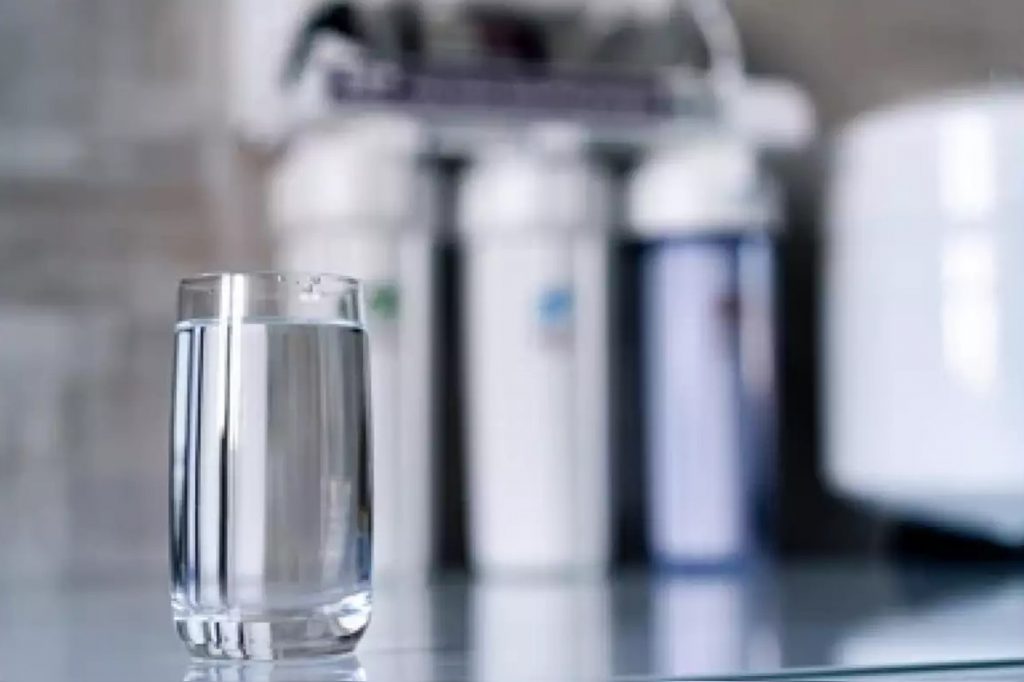In today’s world, access to clean and safe drinking water is a top priority for households. Water pollution and contaminants have become increasingly prevalent, making it crucial to invest in effective water filtration systems. With a wide array of options available, it can be challenging to determine which type of water filter best suits your needs. This article will guide you through the various kinds of water filters available, helping you make an informed decision to ensure the health and well-being of your family.
Discover the perfect water filter that removes fluoride.
Understanding the Importance of Water Filtration
Why Do You Need a Water Filter?
Before delving into the types of water filters, it’s essential to understand why they are necessary. Unfiltered tap water may contain impurities, such as sediment, chlorine, bacteria, and heavy metals, which can be harmful to your health if consumed regularly. A water filter helps remove these contaminants, providing clean and safe drinking water.
Health Benefits of Filtered Water
Filtered water not only tastes better but also offers numerous health benefits. It can help reduce the risk of gastrointestinal diseases, lead poisoning, and exposure to harmful chemicals present in untreated water.
Types of Water Filters
Activated Carbon Filters
Activated carbon filters are one of the most commonly used filtration methods for residential purposes. They consist of a carbon material, usually in the form of granules or blocks, with an incredibly porous structure. This porosity provides a large surface area for adsorption.
Activated carbon filters effectively target:
- Chlorine: These filters efficiently remove the taste and odor of chlorine from your tap water, resulting in a more pleasant and refreshing taste.
- Volatile Organic Compounds (VOCs): VOCs, which can include chemicals like benzene and pesticides, are effectively adsorbed by activated carbon filters, ensuring safer drinking water.
- Bad Odors: Unpleasant odors from your tap water, such as those caused by sulfur compounds, are significantly reduced.
While activated carbon filters are excellent for improving the taste and odor of water, they may not remove certain minerals, heavy metals, or microbes.
Reverse Osmosis Filters
Reverse osmosis (RO) filters employ a semipermeable membrane to remove a wide range of impurities. Water is forced through this membrane, which allows water molecules to pass while trapping contaminants. RO systems are highly effective at removing:
- Heavy Metals: RO filters can remove heavy metals like lead, mercury, and cadmium, which can be harmful if ingested.
- Dissolved Solids: These filters are efficient at reducing the concentration of dissolved solids, resulting in purer water.
- Microorganisms: RO systems can filter out bacteria, viruses, and cysts from your water supply.
However, it’s important to note that reverse osmosis can be relatively slow compared to other filtration methods, and it can produce wastewater during the filtration process.
UV Purifiers
UV purifiers use ultraviolet light to disinfect water. The UV rays penetrate the cells of bacteria and viruses, disrupting their DNA and rendering them unable to reproduce. UV purification is highly effective at killing microorganisms, making it a valuable addition to a filtration system, especially in areas with potential biological contamination.
UV purifiers do not remove physical impurities or chemicals but excel at sterilizing water. They are commonly used in conjunction with other filtration methods to ensure comprehensive purification.
Ceramic Filters
Ceramic filters are renowned for their durability and ability to remove sediment, bacteria, and cysts from water. These filters consist of porous ceramic material that traps impurities while allowing clean water to pass through. Ceramic filters are commonly used in gravity-fed systems and are effective at improving water clarity and safety.
Ion Exchange Filters
Ion exchange filters are designed to address the issue of water hardness, primarily caused by high levels of calcium and magnesium ions. These filters replace these ions with less troublesome ones, such as sodium or potassium ions. By doing so, ion exchange filters can improve the taste of water and reduce scale buildup in appliances like kettles and coffee makers.
Distillation Filters
Distillation filters operate by heating water to create steam, leaving impurities behind. The steam is then condensed back into pure water. This process effectively removes contaminants, making distilled water one of the purest forms of drinking water. However, it’s worth noting that distillation can be energy-intensive.
Whole-House Filters
Whole-house filters are comprehensive filtration systems installed at the point where water enters your home. These systems ensure that every tap in your house delivers filtered water, providing a centralized solution for all your water needs. They are particularly useful for homes with poor water quality or specific water concerns.
Faucet-Mounted Filters
Faucet-mounted filters are easy-to-install devices that attach directly to your faucet. They are convenient for on-demand filtration, primarily used for drinking and cooking water. These filters are budget-friendly and ideal for those with limited space or rental properties.
Choosing the Right Water Filter
Factors to Consider
When selecting a water filter, consider factors such as the quality of your water supply, the contaminants you want to remove, your budget, and the maintenance requirements of the filter.
Get Your Water Tested
Before making a decision, it’s a good idea to have your water tested to identify specific contaminants. This will help you choose a filter that targets the right impurities.
Maintenance and Filter Replacement
Regular maintenance and timely replacement of filter cartridges are essential to ensure the continued effectiveness of your chosen water filter. Be sure to factor in these costs when budgeting for your filtration system.
Conclusion
In conclusion, the availability of various water filters provides a solution for every household’s unique needs. Whether you opt for activated carbon filters, reverse osmosis systems, or any other type, the goal is the same: to provide your family with safe, clean, and great-tasting water.
If you’re concerned about the quality of your tap water, take action today to invest in a reliable water filter that suits your requirements. With the right choice, you can enjoy the peace of mind that comes with knowing your family’s health is protected.

